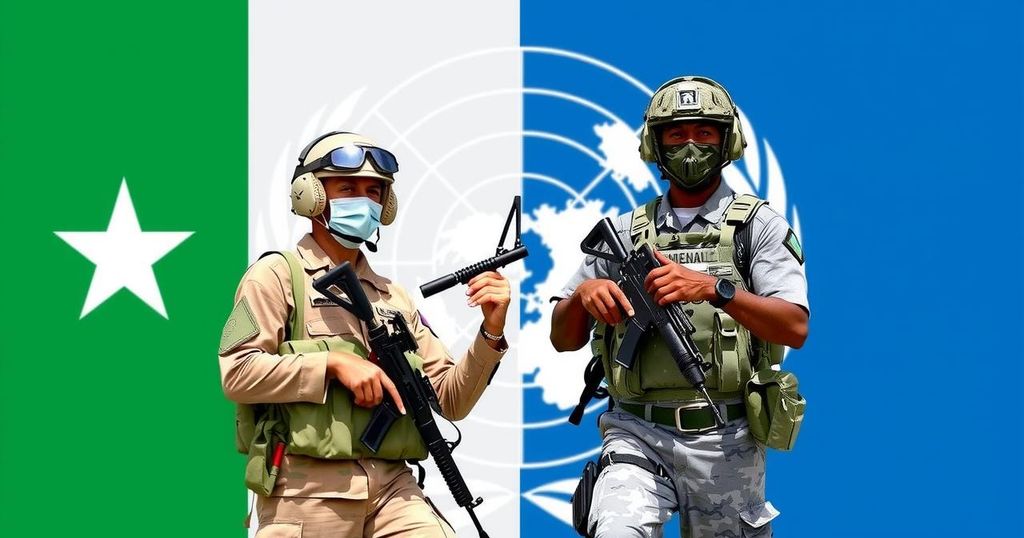US Intensifies Efforts to Transition Kenya-Led Force in Haiti to UN Peacekeeping

The United States is working to convert the Kenyan-led force in Haiti into a U.N. peacekeeping operation due to rising gang violence. The gangs now control around 85% of Port-au-Prince, prompting urgent action for the protection and stabilization of the nation. Lack of funding and geopolitical resistance present significant barriers to the proposed transformation.
The United States has intensified efforts to convert the Kenya-led multinational force in Haiti into a United Nations peacekeeping mission, responding to an alarming surge in gang violence that recently disrupted air traffic to Port-au-Prince. The U.S. proposed this transition in early September to secure consistent funding for the U.N.-backed force, which aims to assist Haiti’s national law enforcement in combatting rampant gang control. Following the Haitian transitional council’s recent controversial dismissal of the interim prime minister, gang violence has escalated dramatically, culminating in the gangs successfully causing the closure of the main airport in the capital. The U.N. estimates that these groups now control approximately 85% of Port-au-Prince. The U.S. has sought the approval of the U.N. Security Council to initiate preparations for this transformation; however, opposition from Russia and China complicates the process. A plan originally meant for 2,500 international police deployment is far from realization, as only about 430 officers are currently on the ground, primarily from Kenya along with small contingents from other nations. Although Kenya is committed to augmenting its presence with a further 600 police by November, the mission faces critical funding shortfalls. The trust fund for the multinational effort, supported by voluntary contributions, remains significantly underfunded, raising concerns about the sustainability of operations. Since the assassination of President Jovenel Moïse in 2021, gang influence has increased, resulting in a tumultuous landscape marked by civilian backlash through vigilante justice. Haitian leaders have expressed support for a U.N. peacekeeping force, echoed by a recent resolution from the Organization of American States. However, historical precedents of foreign interventions in Haiti have left a complex legacy, leading to mixed feelings among the populace regarding the efficacy and intentions of such missions.
The transformation of the Kenya-led force to a U.N. peacekeeping operation in Haiti comes in light of a severe security crisis exacerbated by increasing gang violence. The proposed operation aims to stabilize the nation by empowering the Haitian National Police amidst dire funding challenges. Previous military interventions in Haiti have often been controversial and somewhat unsuccessful, contributing to skepticism about foreign-led peacekeeping efforts. With a significant portion of Port-au-Prince under gang control, adjustments to the international presence are deemed critical. The current funding model relies heavily on voluntary contributions, which have historically fallen short, complicating the mission’s viability and thus prompting U.S. involvement to facilitate a more structured approach via U.N. oversight.
In summary, the United States is actively pursuing the establishment of a U.N. peacekeeping force in Haiti, intended to replace the current Kenya-led multinational operation, amidst escalating gang violence and a serious funding crisis. The process faces resistance from key countries such as Russia and China while confronting underfunded efforts already deployed. The background of previous foreign interventions shapes the challenges and public sentiment surrounding this potential transition, further emphasizing the complexities inherent in international peacekeeping initiatives in Haiti.
Original Source: apnews.com







